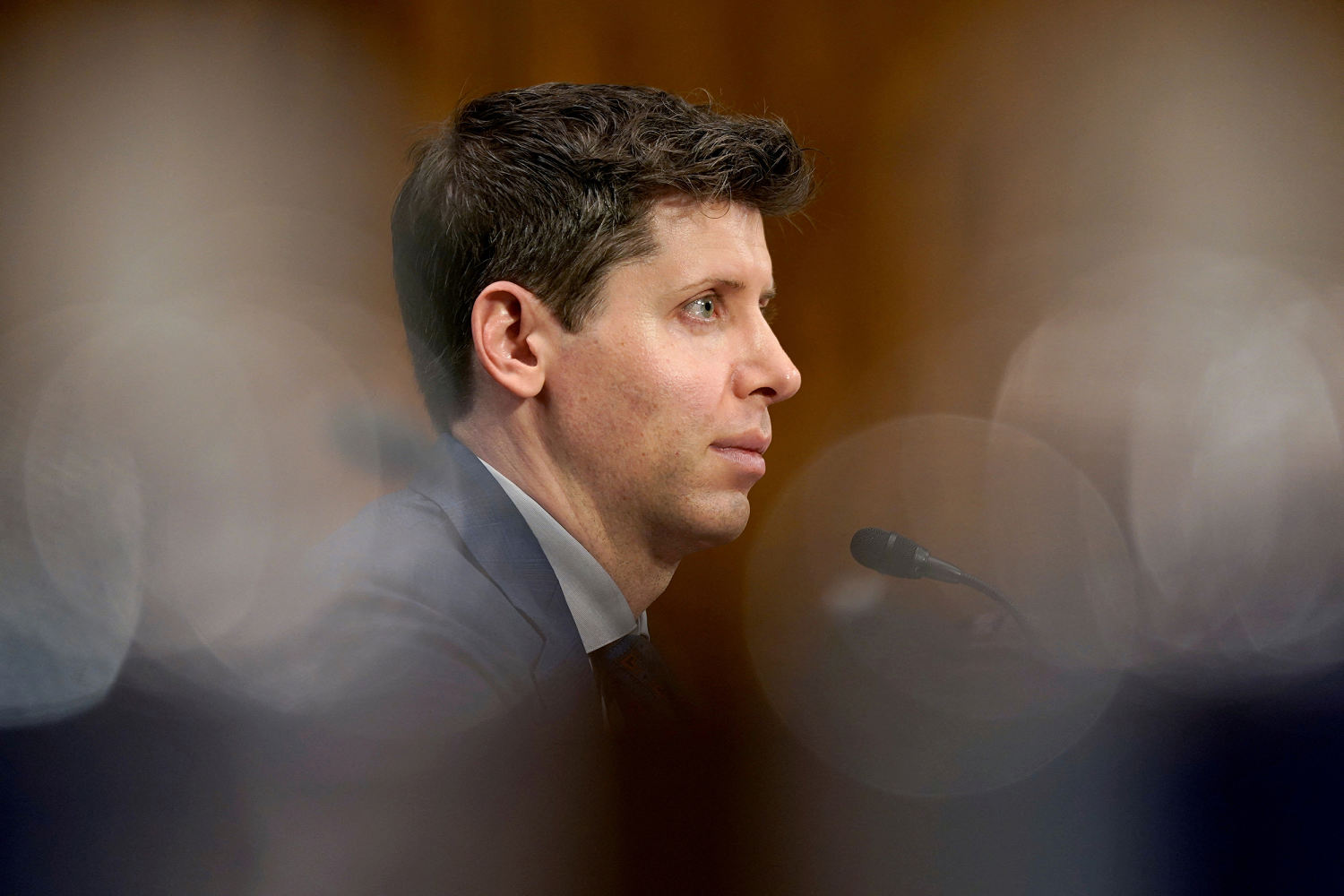[ad_1]

Sam Altman is back as the chief executive of OpenAI.
OpenAI, the hot tech startup behind ChatGPT, said late Tuesday that Altman and the board of the nonprofit group that oversees the company came to an agreement in principle for Altman to return as CEO with a new board to replace the one that ousted him Friday.
Altman’s return should quell what was an all-out revolt by OpenAI employees against his removal and mark the beginning of the end of one of the most-watched corporate sagas in tech history.
The ordeal began Friday, when the board of the nonprofit group that oversees OpenAI said it had removed Altman as CEO and “concluded that he was not consistently candid in his communications with the board, hindering its ability to exercise its responsibilities.”
Over the next week, OpenAI turned into some combination of “Succession” and “Silicon Valley.” The company appointed two different interim CEOs, Altman appeared to have joined Microsoft, only for that announcement to be walked back, deadlines for negotiations about Altman’s return reportedly came and went, and employees threatened to resign en masse.
OpenAI said on X that its new board would be constituted with three initial members: former Salesforce co-CEO Bret Taylor, former White House adviser and Harvard University President Larry Summers and Adam D’Angelo, the CEO of the website Quora and a former early Facebook employee.
“We are collaborating to figure out the details. Thank you so much for your patience through this,” the company said on X in an unsigned post.
D’Angelo already was a member of the OpenAI board, but other previous board members will not remain. The outgoing members include tech entrepreneur Tasha McCauley, OpenAI chief scientist Ilya Sutskever and Helen Toner, director of strategy and foundational research grants at Georgetown University’s Center for Security and Emerging Technology’s Helen Toner.
The board members never gave specific details behind their decision to remove Altman as CEO, other than a statement Friday that said he “was not consistently candid in his communications with the board.” They did not elaborate on how Altman had failed to be candid.
On Saturday, Brad Lightcap, OpenAI’s chief operating officer, sent a memo to OpenAI employees calling Altman’s ouster a surprise.
“We can say definitively that the board’s decision was not made in response to malfeasance or anything related to our financial, business, safety, or security/privacy practices,” he wrote.
On Tuesday, The New York Times reported that the board had been bickering for more than a year on questions about the safe development of AI, including how quickly to roll out the technology while ensuring humans do not lose control of it. Altman was on the side of moving quickly, the newspaper reported.
Altman said in a separate statement on X that he was happy to return as CEO.
“i love openai, and everything i’ve done over the past few days has been in service of keeping this team and its mission together,” he wrote, eschewing traditional punctuation.
Altman added that, with the new board in place, he was “looking forward to returning” and “building on our strong partnership” with Microsoft. OpenAI and Microsoft have a longstanding partnership, with Microsoft having invested in the startup and OpenAI using Microsoft’s cloud computing services.
Microsoft CEO Satya Nadella said in a post on X that Microsoft is “encouraged by the changes to the OpenAI board. We believe this is a first essential step on a path to more stable, well-informed, and effective governance.”
Other OpenAI executives celebrated the decision.
Mira Murati, who was briefly interim CEO after Altman’s ouster, reposted the OpenAI announcement late Tuesday with a simple blue heart emoji. Greg Brockman, the startup’s president and a co-founder, wrote on X, “Returning to OpenAI & getting back to coding tonight.”
But the future of the company and its peculiar governance structure remain in some doubt.
OpenAI was started as a nonprofit organization that later added a for-profit subsidiary that was still overseen by the nonprofit group’s board. That structure meant the board members of the nonprofit group had ultimate say with no further oversight from other interested parties, such as shareholders.
Altman, 38, has been a fixture of San Francisco’s tech scene for a decade as an investor, startup adviser and most recently as the CEO of the industry’s hottest startup. That made him increasingly a household name outside the tech sector.
After his sudden ouster Friday, other high-profile tech figures such as former Google CEO Eric Schmidt quickly came to his defense. Within a few days, more than 740 of OpenAI’s 770 employees had signed a letter to the startup’s board asking for Altman’s return.
Elon Musk, the tech billionaire who was among the first donors to OpenAI when it was a nonprofit, said that Altman’s return was better than one alternative: Altman and most of OpenAI’s employees going to work for Microsoft.
“Less concentration of power,” Musk wrote.
[ad_2]
Source link

 Casino Welcome Bonus
Casino Welcome Bonus